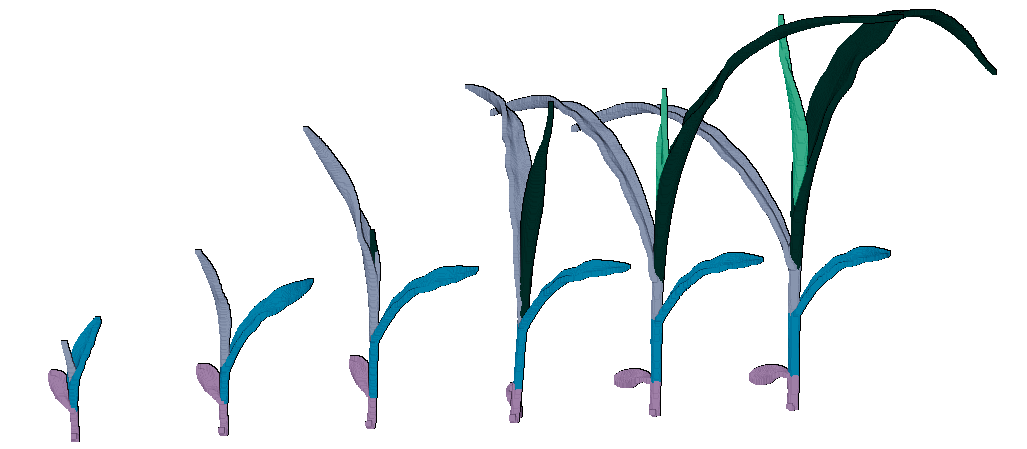A large scale spatio-temporal dataset of point clouds of maize and tomato plants

Maize

Tomato
Description
The dataset contains 7 maize plants measured on 12 days. This gives 84 maize point clouds (about 90 Mio. points). From these, 49 point clouds (about 60 Mio. points) are labeled. Furthermore, the dataset contains 7
tomato plants measured on 20 days (about 350 Mio. points). This gives 140 point clouds from which 77 point clouds (200 Mio. points) are labeled. Note that we provide temporally consistent labels for each point in the
clouds.
Files
We provide labeled and unlabeled point clouds, the file name indicates whether the point cloud is annotated or not. For example, M01_0313_a.xyz is labeled, M01_0314.xyz is not labeled.
For the tomato plant point clouds, each annotated file contains the x,y,z coordinates, and the label associated with the point. For the maize point clouds. Each file annotated contains the x,y,z coordinates, and the 2 labels associated with the point. For both species, if no labels are provided, the files contain only the x,y,z coordinates.
Dataset Structure
- maize
| |-plant1
| - scan_date.xyz
| |-plant2
| - scan_date.xyz
| |-plant3
| - scan_date.xyz- tomato
| |-plant1
| - scan_date.xyz
| |-plant2
| - scan_date.xyz
| |-plant3
| - scan_date.xyz
Download
You can download the entire dataset here Pheno4D.zip
Other Resources
We provide a small API to access the data at https://github.com/AIS-Bonn/data_loaders
To visualize the point clouds you can use our GUI, see https://github.com/AIS-Bonn/easy_pbr
How to Cite
D. Schunck, F. Magistri, R. A. Rosu, A. Cornelißen, N. Chebrolu, S. Paulus, J. Léon, S. Behnke, C. Stachniss, H. Kuhlmann, and L. Klingbeil, “Pheno4D: A spatio-temporal dataset of maize and tomato plant point clouds for phenotyping and advanced plant analysis,” PLOS ONE, vol. 16, iss. 8, pp. 1-18, 2021. doi:10.1371/journal.pone.0256340. [PDF]
Contact
Contact: Lasse Klingbeil if you have any questions.
Acknowledgments
This work has been funded by the Deutsche Forschungsgemeinschaft (DFG, German Research Foundation) under Germany’s Excellence Strategy, EXC-2070 – 390732324 – PhenoRob.